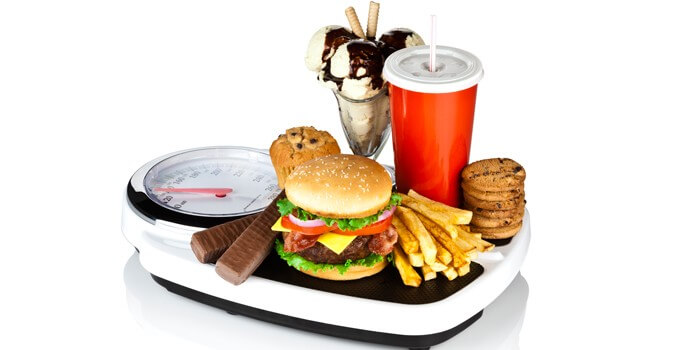An early 1991 study in the European Journal of Epidemiology found people consumed more calories in colder months and felt hungrier even though they were eating larger meals.
Researchers closely tracked how much people ate from season to season and how quickly they ate it. Turns out, the study subjects consumed about 200 more calories a day, beginning in the Autumn when the days grew darker.
This study found that we seem to be very sensitive to light. Less of it, prompts us to seek food and eat it faster.
PMID: 1946724
A 2005 study published in the European Journal of Clinical Nutrition found study participants consumed an average of 86 calories more each day in the Autumn than in the spring.
The participants ate more fat and saturated fat in the winter months. The lowest physical activity level was observed in the winter and the highest in the spring. But the researchers who conducted that study also noted that the magnitude of “extra” calories was fairly small over a year.
PMID: 16340952
Another 2013 study found that the change of season may influence the balance of some hormones that control hunger and appetite.
HORMONES AFFECTED BY SEASONS:
Leptin – made by fat cells, that decreases your appetite.
Ghrelin – increases appetite, and also plays a role in body weight.
Glucocorticoids – controls how your cells use sugar and fat and curbing inflammation
A prior review that looked at data in people and animals found that seasonal changes affected many hormones related to hunger and appetite, including glucocorticoids, ghrelin, and leptin.
PMID: 23966906
According to a 2016 study by the University of Exeter in the UK., “People have evolved to have subconscious urges to over-eat, and limited ability to avoid becoming obese, especially in winter.”
PMID: 26740612
We may be genetically disposed to overeat and store more fat during the winter months, and there are other reasons for overeating and how to deal with them.
REASON NO.1 – TEMPERATURE
When internal temperature drops, the body burns more calories to fight the cold. Our mind tells us to throw on an extra layer of clothing and sometimes grab a calorie-loaded hot food or drink such as chocolate bars, cookies and white chocolate mochas.
SOLUTION:
To warm up without consuming too many calories, try drinking hot teas and broth-based soups loaded with beans and vegetables. Plain black coffee works too, as caffeine naturally boosts metabolism and warms the body.
REASON NO. 2 LESS PHYSICAL ACTIVITY
We are less likely to maintain an exercise routine and more likely to decrease movement in general since most of us avoid the chilly outdoors. The less active we are, the more likely we will fill that gap in time by overeating.
SOLUTION:
Maintaining an exercise routine may be the best course of action regardless of what season. Do household chores, walk 5-10 mins. inside the house every hour, take a few steps on the stairs, and many more creative ways to keep the body moving without going out.
REASON NO. 3 – DEHYDRATION
People generally tend to drink less water in winters, which leads to dehydration. This problem is quite common during this season. The drying heat of room heaters and layers of clothes also makes our bodies dehydrated. Our body needs water, but we confuse our thirst with hunger and eat more food.
SOLUTION:
The best way to avoid dehydration is to drink at least 2-3 L of water each day. Warm teas and soups could count towards the daily fluid intake and help regulate body temperature.
REASON NO. 4 – WINTER BLUES
People can suffer from vitamin D deficiency and experience lower serotonin levels (a neurotransmitter linked to feelings of pleasure and wellbeing) due to the tiny amount of sunlight in winter.
Both these deficiencies have been linked to the onset of Seasonal Affective Disorder, or SAD (depression related to changes in seasons), resulting in seeking comfort from calorie-dense foods.
SOLUTION:
Get outside during daylight hours and try to get some sun on your exposed skin to top up your vitamin D and serotonin levels. If you think you’re suffering from SAD, take preventative measures and seek professional help if necessary.
REASON NO. 5 WE BELIEVE THAT WE’D GAIN WEIGHT
Many of us go into winter already believing that we would gain weight, so we’d inevitably set ourselves up for failure or, in other words, overeating. This type of thinking is especially damaging since how we think and feel dictates the food we choose.
SOLUTION:
Prepare your mind for positive thinking. Joining a support group such as close friends may be helpful, while others may engage themselves with hobbies that aren’t food-related. Self-motivation is key.






